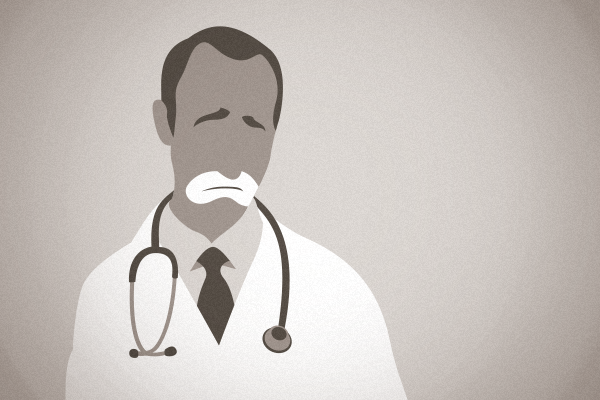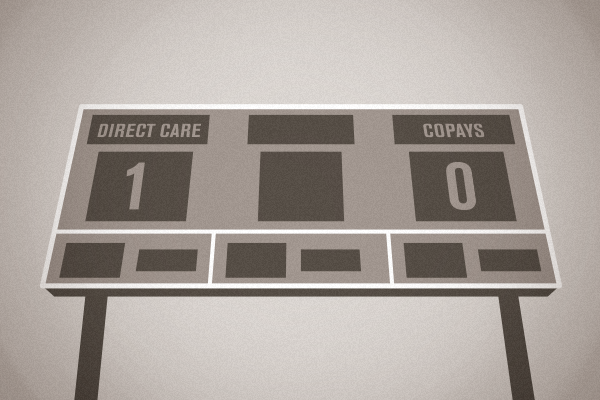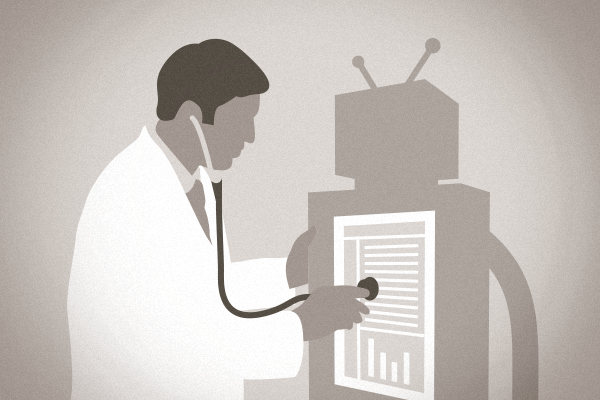Women are often considered drivers for healthcare in their families.
Unfortunately, Kaiser Family Foundation performed a study and found that many women face cost and logistical barriers to obtaining healthcare for themselves.
Women are often considered drivers for healthcare in their families.
Unfortunately, Kaiser Family Foundation performed a study and found that many women face cost and logistical barriers to obtaining healthcare for themselves.
Seriously, we’ve heard enough idealistic hoopla about EMRs improving patient care. It is not the reality of the situation. What appears to be the reality is that the companies who provide the EMRs, and get government kick backs for doing such, are definitely raking in a lot of dough. What’s not happening, though, is anything beneficial in the doctor’s office. The machines aren’t widely adopted and when they are, they’re costing doctors time with unnecessary clicks. And the nail in the coffin comes from the New York Times, who write, “The conversion to electronic health records has failed so far to produce the hoped-for savings in health care costs and has had mixed results, at best, in improving efficiency and patient care, according to a new analysis by the influential RAND Corporation.”
Kevin Pho knows how to craft a headline. He says on Kevin MD, that patient satisfaction is all the rage, and that it might actually kill.

Dr. Brian McDonough, Medical Editor of CBS Philadelphia, made a sad recommendation when he said, “Next time you see your doctor you might want to ask if he or she is happy.” Ouch. According to a study last year, 42% of docs admit they are ‘dissatisfied’ or ‘very dissatisfied’ in their medical practices, and 59% say they are unlikely to encourage a young person to go into medicine (talk about exacerbating the doctor shortage). Compare that with only 16% of physicians reporting a generally favorable outlook about their career future. Read more
The Direct Primary Care Journal shared findings recently about the prevalence of iPad usage by physicians. According to the report, the most common activity of physicians who use an electronic health record (EHR) and use a smartphone or tablet is “sending and receiving emails.” The second most frequent activity among tablet users is “accessing EHRs (51% daily).” Compare that with just 7% of physicians using their smartphone to access EHRs.
VIEW THE COMPLETE BREAKDOWN OF RESEARCH FINDINGS ON THE DPCJ’S WEBSITE
We’ve highlighted some of the results here:

According to AP, “New research suggests giving patients easier-to-take medicine and no-copay medical visits can help drive down high blood pressure, a major contributor to poor health and untimely deaths nationwide.” They released a new article highlighting the optimistic results. This is a major win for common sense, something direct care has been sticking up for years now. If people don’t have to pay to come in to the doctor, they will see the doctor. Of course, we want to toast these findings with everything in the cabinet. But, to be fair, let’s go over what actually happened in the study.

According to a new collaborative study, “Smart design of health insurance exchanges that will enable Americans to purchase individual coverage under the Affordable Care Act could save consumers and the government more than $9 billion annually.”
The study was called “Can Consumers Make Affordable Care Affordable? The Value of Choice Architecture,” and it tested the ability of consumers to choose the best health insurance plan for their needs without assistance. FierceHealthIT claims, “Most participants struggled to make the most cost-effective choices for themselves and their families.” Which on one hand is just sad, that Americans have trouble buying anything (since it’s safe to say consumer spending drives our country). However, it does draw attention to an inarguable truth out–bureaucracy selling anything tends towards confusing, unfavorable market outcomes. Perhaps part of the reason is the lack of realistic motivators.

The Journal of General Internal Medicine has confirmed what we’ve been saying all along: Doctors spend more time with computers than they do with patients. Their new study lays out the cold hard fact that face time is down, and hours spent working on computers handily beat out patients. Here are the highlights from the research. Try not to twist your neck while you’re shaking your head.